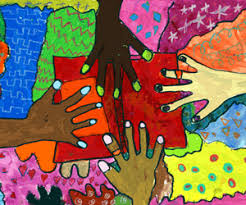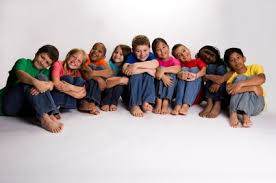empiric - experiential - experimental
So, you're born. You start to experience life. You listen to your caregivers. Whether what they tell you is good/bad/right/wrong, you have no frame of reference to decide...so you just absorb/assimilate...
Thus begins the endless cycle of circular reasoning:
Definitions of Circular Reasoning (Begging the Question)
" Circular Reasoning is an attempt to support a statement by simply repeating the statement in different or stronger terms. In this fallacy, the reason given is nothing more than a restatement of the conclusion that poses as the reason for the conclusion." { Circular Reasoning by Stephen Hagin}
"Circular Reasoning: This fallacy occurs when you state your claim and then, usually after rewording it, you state it again as your reason. (this fallacy is also commonly called ‘Begging the Question’)" { Logical Fallacies and Causal Terms from The Allyn & Bacon Guide to Writing}
Begging the Question occurs when you "take for granted or assume the truth of the very thing being questioned." { Begging the Question from answers.com}
Scientific Method is based on hypothetico-deductive logic in which we "assume the truth of the very thing being questioned" in order to construct if-then predictions (i.e., we say "IF this theory is true, THEN when we do ___ we will see ___") so we can use reality checks (by comparing the predictions of a theory with observations of reality) to test our theory, to help us determine whether "the way we think the world is" matches "the way the world really is." { The Logic of Scientific Method} Do you see the important difference — despite a superficial similarity — between scientific logic and circular logic?
Elliott Sober gives a "broader definition of circularity" — "An argument is circular if it couldn't possibly convince someone that the conclusion is true if they didn't believe the conclusion already." {from Core Questions in Philosophy, 1st Edition, p. 183}
In circular reasoning, "The definition comes first and then the supposed proof is based on that definition. This is proving something (at the end) by making logical deductions from premises that themselves contain the conclusion. Looping from the end to the beginning that way is called circular reasoning. Circular reasoning often sounds right, but it is invalid nonetheless. ... It is often hard to recognize reasoning as circular because the steps between the first and last may be many." { Logic and Literary Argument by Eric Rabkin}
I grew up fairly comfortable. I had family around, Sunday dinners, mostly love. There were things I didn't understand, like intolerance for people who were different from my family, so that drew me to "the others" even more.

I'm remembering all the way back to kindergarten in the 60s, when de-segregation was just beginning. I don't really know if it is in my DNA or not, but the first boy I ever liked in Kindergarten was Brian Sweeney, an African American lad, who I thought was the cutest boy in the whole school. We ended up remaining friends all the way through high school.
Later, in the 6th grade, when I wrote a love note to Lonnie Melton, the only African American boy in my class, my parents were called in to stem the tide. It didn't work. I have always been drawn to those who can teach what I am lacking and make me better than I already am. Perhaps it has always been in my biology, to reach for those who can strengthen the gene pool...
Decades later, I can honestly say that I am thrilled to see the number of mixed-race people thriving in society. Not that the fight is over, but it is steadily moving forward.

|
No comments:
Post a Comment